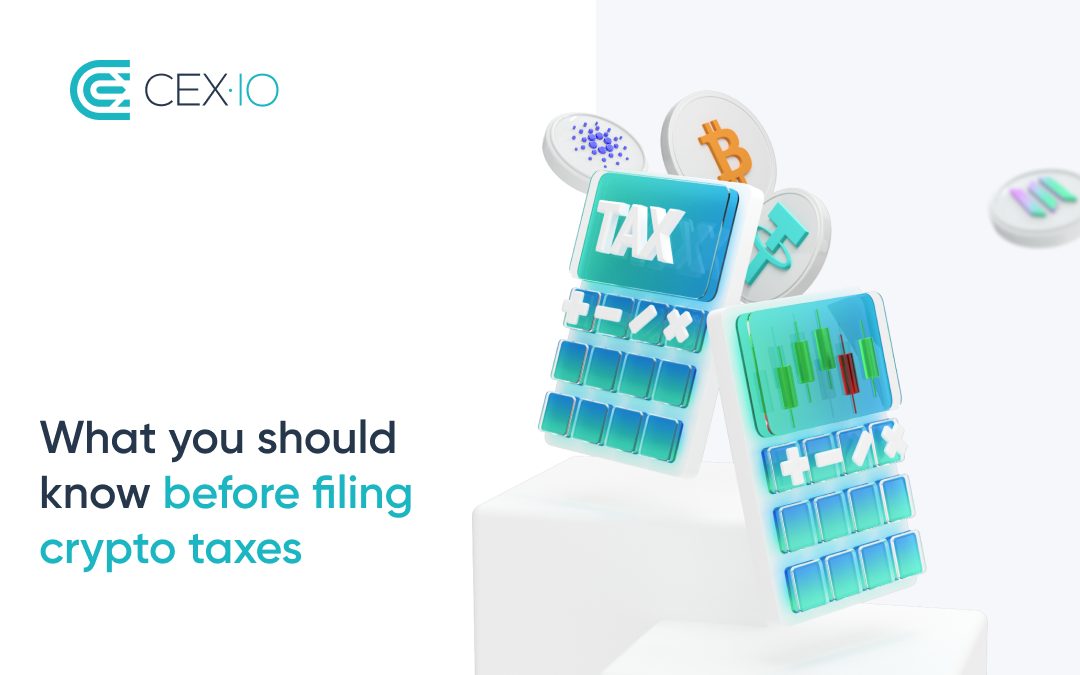If you invested in cryptocurrencies last year or quarter, you may be expected to report your profits or losses to revenue agencies in your country. Governments across the world have their own rules for adding crypto assets to the mix of income sources, which can make the process complicated for crypto newcomers. Furthermore, the recent surge of decentralized finance (DeFi), non-fungible tokens (NFTs), and decentralized exchanges (DEXs) that attracted many newcomers raise even more questions for investors about how to file their crypto taxes.
Here are a few basic questions you should ask yourself, or local crypto tax professionals, to prepare for further tax seasons.
Is cryptocurrency taxable in one’s country?
Depending on the current status of crypto adoption in your country, there can be different rules regarding tax on cryptocurrencies. For example, the United States’ local regulator, the Internal Revenue Service (IRS), defines cryptocurrency as property, meaning it is subject to capital gains and income taxes.
On the other hand, in Germany, cryptocurrencies are considered private money. As a “private sale,” crypto gains are tax-exempt in Germany after a holding period of one year. In the case of holding and selling crypto in less than a year, the crypto gains become taxable only if they surpass a certain threshold.
Clarifying whether or not crypto is taxable in your country will immediately determine the value of doing further research.
How is crypto activity taxed?
You can be liable for paying different taxes depending on the type of cryptocurrency transactions you made in a financial period. For example, in some countries, making profit from cryptocurrency trades can be a base for one tax, while earnings from mining and staking may be subject to a different type of tax.
Moreover, investors may still need to pay taxes regardless of whether they have an overall profit or loss. In some jurisdictions, crypto taxes can be realized at the time of the transaction, rather than the end of the financial year. As a result, residents of some countries can sometimes face crypto taxes that exceed the overall profit from crypto activity. Therefore, double-check the tax percentage and under what circumstances it may become applicable, especially if crypto activity is new to you.
How much do I owe in crypto taxes?
In most countries, residents are required to record the value of their cryptocurrency in local currency at the time of the crypto transaction, to define the cost basis for their crypto taxes. Considering that crypto investors may use multiple platforms and participate in different crypto activities, it can make collecting information time-consuming. Moreover, different platforms may use different price references, making the process even more complicated.
However, the crypto space contains numerous services that help investors calculate their potential taxes and prepare reports for regulators and accountants. CEX.IO partnered with CryptoTaxCalculator, empowering CEX.IO users to take advantage of their platform’s comprehensive tax reporting capabilities, and receive a 30% discount when purchasing one of CryptoTaxCalculator’s plans.
With CryptoTaxCalculator, users from different countries can aggregate transaction information from their various crypto activities in one place, and categorize them to generate detailed crypto tax reports. Before using any tax software, make sure to do your own research or consult with your accountant.
